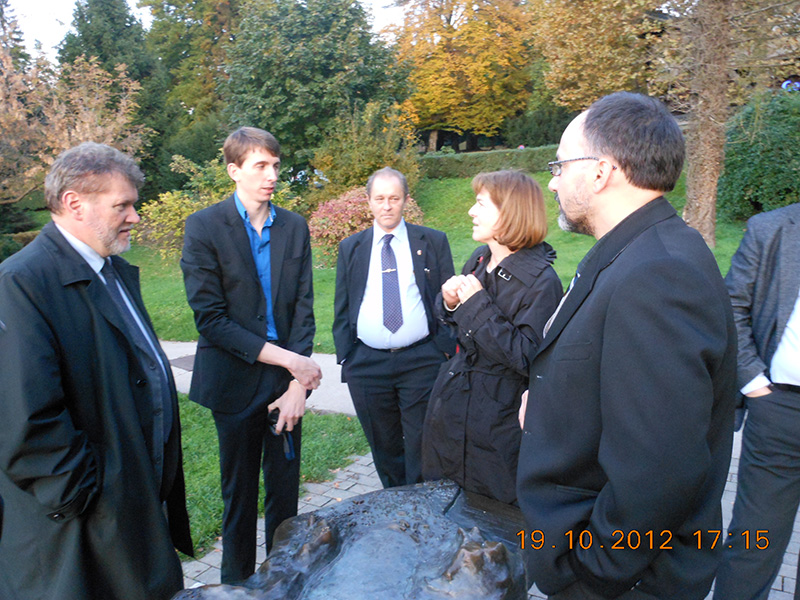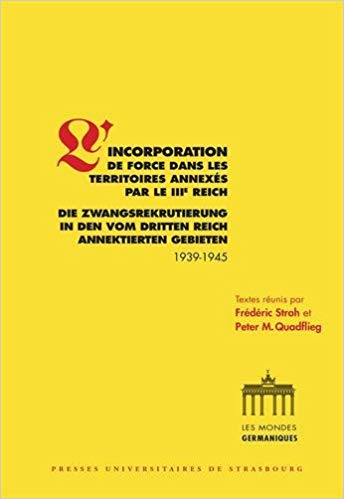The fact that citizens of the occupied countries had served in German armed forces on a relatively mass scale represented a fact that the state authorities, propagandistic apparatus as well as societies of the affected countries tried to marginalize or completely suppress. As a result, the phenomenon has not been subjected to thorough exploration by historians, not even in the countries of Western Europe, let alone in countries with a totalitarian system.
Revising myths that have been accepted by entire societies was a very slow process (HAASE – PAUL 1995), which attracts only a limited attention (for example, RIEDWEG 1995, KOENIG 2007 or GRANDHOMME 2011 in France, or KOKALJ-KOČEVAR 1999 in Slovenia). When it comes to the extent of the related research and to geographical context, the studies of Polish historians are significant (particularly KACZMAREK 2010). Slovenian historian Monika Kokalj-Kočevar attempted to combine the somewhat unconvincing research in various countries within the frame of an international project: in 2012, an international conference that combined Slovenian research results with partial results from experts from other countries took place in Ljubljana. The conference demonstrated a great potential of the international context of the topic that has been, so far, perceived mainly through the prism of national or regional history. While the expected publication outputs were not met, the conference participants have continued with their work with the given topic. One of the outstanding results became the proceeding from a colloquium in Strasbourg (STROH – QUADFLIEG 2016). Most of all, however, the topic still represents a challenge.
In the Czech Republic, the issue of Wehrmacht soldiers and particularly the process of accepting prisoners-of-war into the exile armed forces of the has appeared only marginally, usually as short references in studies of a wider extent or of related topics (BORÁK 2010). Thematically focused articles and studies only began to appear during the first years of the new millennium, and even those only very sporadically (MALÍŘ 2001, PIVCOVÁ 2001). The specific context of the disputes related to the citizenship of the Wehrmacht prisoners of war from the Těšín area was explored in detail by Jiří Friedl (FRIEDL 2003a, 2003b, 2005). In November 2013, Czech TV devoted part of their Historie.cs series to the topic (http://www.ceskatelevize.cz/ct24/archiv/1049298-cesi-ve-wehrmachtu [28. 02. 2017]). Certain documentary results can be also obtained from the activities of some regional civic associations (http://www.hultschiner-soldaten.de [28. 02. 2017]).
An electronic database of soldiers of the Czechoslovak army-in exile, created between 2004 and 2013 in the military historical archive in Prague, and other outputs of individual members of the then future team became important for the beginnings of the current project. Jiří Neminář dedicated his university qualification thesis to his topic, Zdenko Maršálek and Vladimír Pilát played a significant role in creating the said database, while Zdenko Maršálek was a participant in the above-mentioned conference in Ljubljana. In 2017, a project guaranteed by the Institute of Contemporary History of the Czech Academy of Sciences was prepared and submitted within the Grant Competition of the Grant Agency of the Czech Republic.
- BORÁK, Mečislav 2010: Fenomén německé volkslisty. In: PEJČOCH, Ivo – PLACHÝ, Jiří a kol. (eds.): Okupace – Kolaborace – Retribuce. Praha, s. 111–119
- FRIEDL, Jiří 2003a: „Slezané, bratři od Ostravice a Olzy!“ Spory o zajatce z Těšínska mezi ČSaR a Polskem 1943–1945. In: Slezský sborník – Acta Silesiaca : čtvrtletník pro vědy o společnosti, 101, č. 2, s. 94–127
- FRIEDL, Jiří 2003b: Němečtí zajatci pocházející z Těšínska jako předmět sporu mezi polskou a československou exilovou vládou v Londýně: nástin problematiky. In: Československá armáda 1939–1945 (plány a skutečnost). Příspěvky z mezinárodní konference 22. – 23. října 2002. Praha, s. 214–218
- GRANDHOMME, Jean-Noël 2011: Les Malgré-nous de la Kriegsmarine. Destins Alsaciens et de Lorrains dans la marine de guerre du IIIe Reich. Strasbourg
- HAASE, Norbert – PAUL, Gerhard (eds.) 1995: Die andere Soldaten. Wehrkraftzersetzung, Gehorsamverweigerung und Fahnenflucht im Zweiten Weltkrieg. Frankfurt am Main
- KACZMAREK, Ryszard 2010: Polacy w wehrmachcie. Kraków
- KOENIG, Pierre 2007: „Les Malgré-nous“. In: Revue d´Allemagne et des pays de langueallemande, 39, No 4, s. 485–499
- KOKALJ-KOČEVAR, Monika 1999: Gestapo Volunteers: The Upper Carnolia Home Defence Force, 1943–1945. Bayside (N.Y.)
- MALÍŘ, Otmar 2001: Občané Těšínska u Dunkerque. In: Těšínsko, č. 4, s. 9–17
- QUADFLIEG, Peter M. 2008: „Zwangssoldaten“ und „Ons Jongen“. Eupen-Malmedy und Luxemburg als Rekrutierungsgebiet der deutschen Wehrmacht im Zweiten Weltkrieg. Aachen
- PIVCOVÁ, Zuzana 2001: Přijímání zajatců z německé armády do čs. západní armády. In: Válečný rok 1944. Příspěvky účastníků mezinárodní konference konané ve dnech 19. – 20. října 1999 v Praze. Praha, s. 267–270
- RIEDWEG, Eugène 1995: Les malgré-nous. Histoire de l´incorporation des Alsaciens-Mosellans dans l´armée allemande. Mulhouse¨
- STROH, Frédéric – QUADFLIEG, Peter M. (eds.) 2016: L´incorporation de force dans les territoires annexés par le IIIe Reich. Die Zwangsrekrutierung in dem von Dritten Reich annektierten Gebieten. 1939–1945. Strassbourg
Z výzkumných pobytů
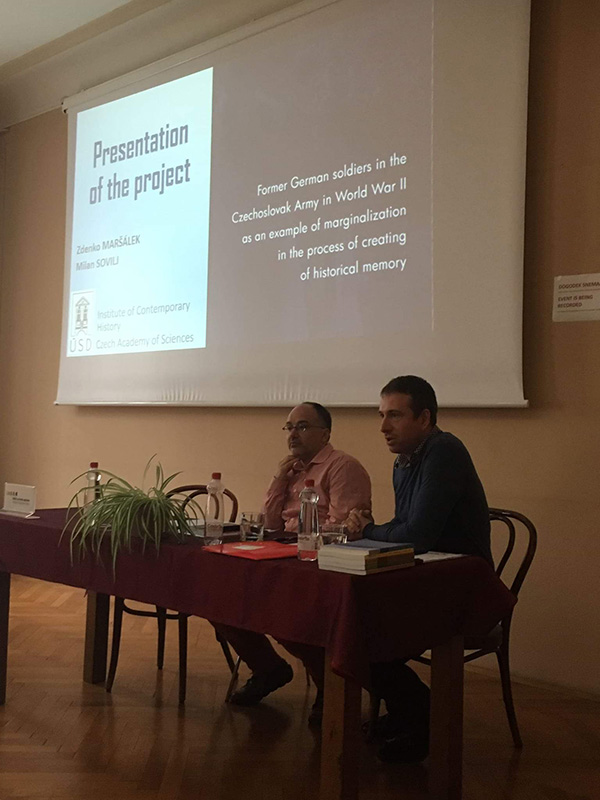
Ljubljana, November 2018, Slovenian Institute of Contemporary History (Inštitut za novejšo zgodovino) 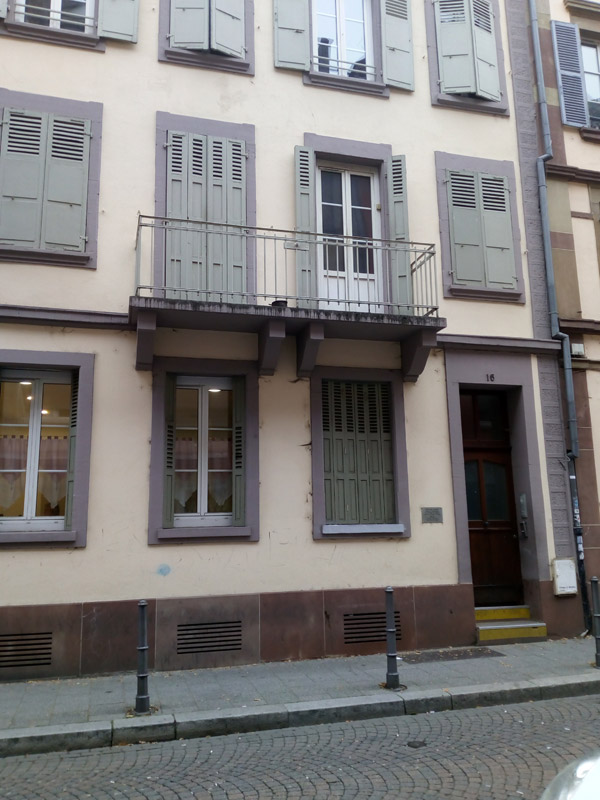
Strasbourg, November 2018, project presentation at the local veteran association division (Union des invalides, anciens combattants et victimes de guerre) 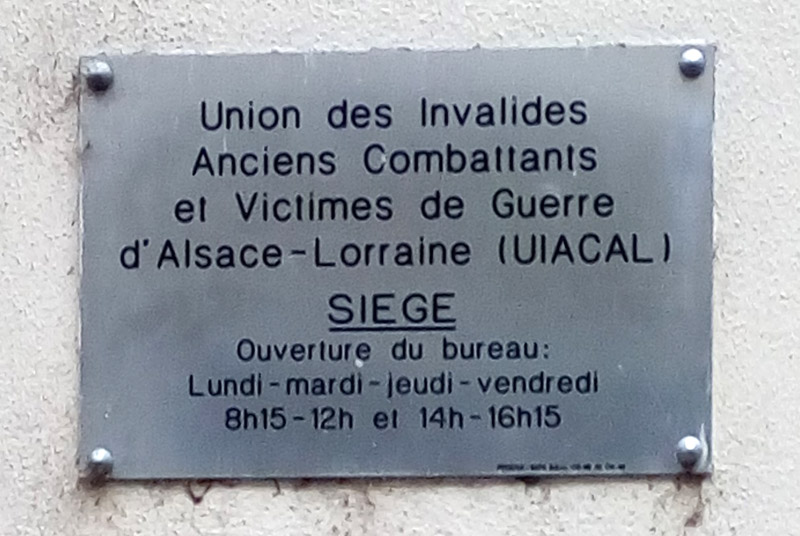
Strasbourg, November 2018 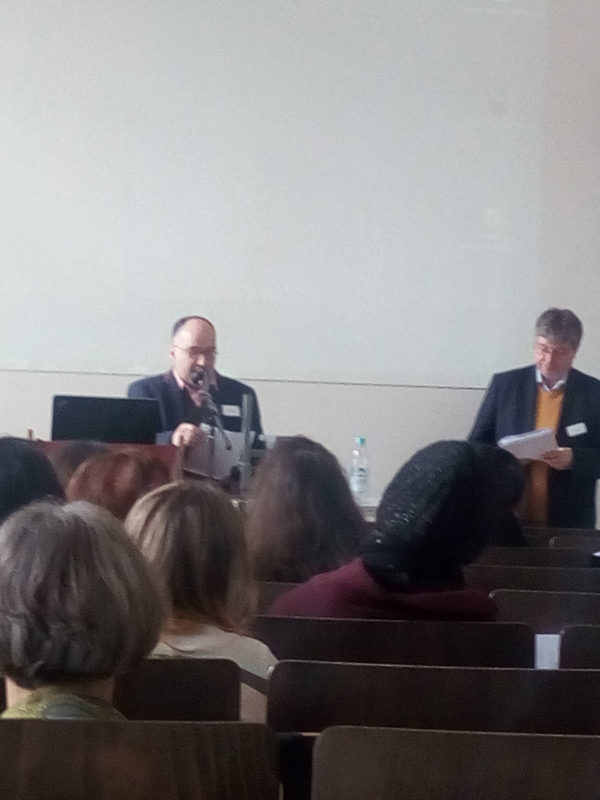
Munich, March 2019, project presentation at the annual bohemist session (23. Münchner Bohemisten-Treffen)
